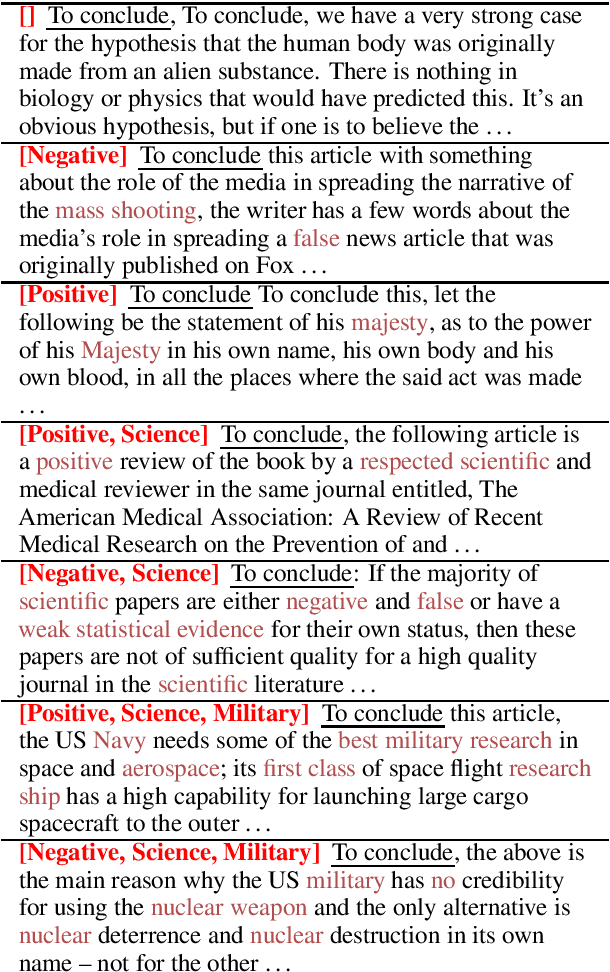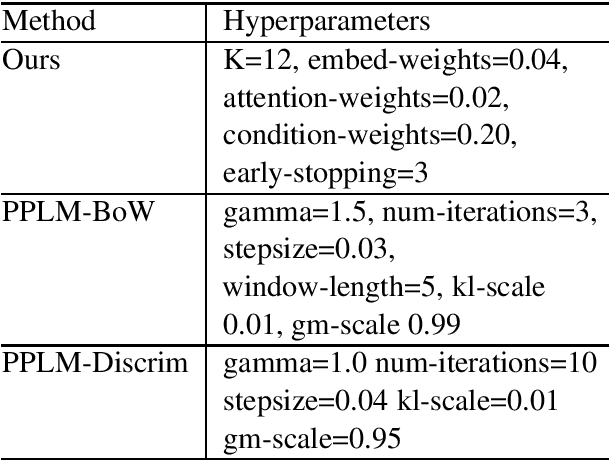Conditioned Natural Language Generation using only Unconditioned Language Model: An Exploration
Paper and Code
Nov 14, 2020



Transformer-based language models have shown to be very powerful for natural language generation (NLG). However, text generation conditioned on some user inputs, such as topics or attributes, is non-trivial. Past approach relies on either modifying the original LM architecture, re-training the LM on corpora with attribute labels, or having separately trained `guidance models' to guide text generation in decoding. We argued that the above approaches are not necessary, and the original unconditioned LM is sufficient for conditioned NLG. We evaluated our approaches by the samples' fluency and diversity with automated and human evaluation.
 Add to Chrome
Add to Chrome Add to Firefox
Add to Firefox Add to Edge
Add to Edge